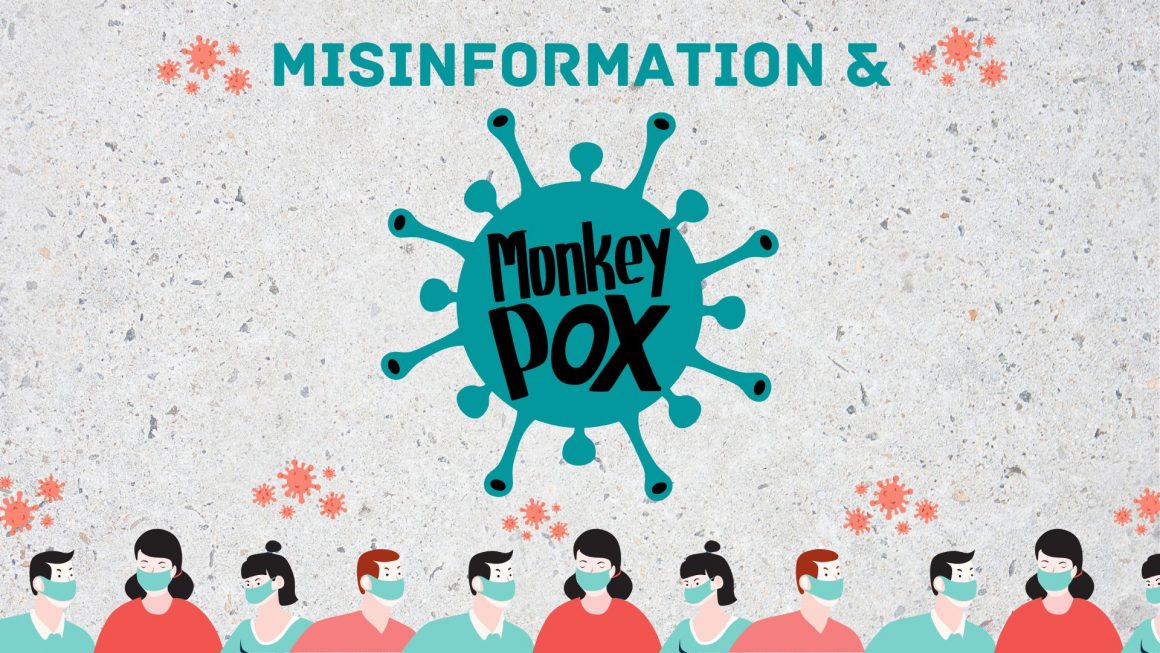By Amanda Wilson on September 15, 2022—
With the utility of the internet, access to information is endless – but paradoxically, so is misinformation. The comment sections of news articles and scholarly journals are filled with users who claim to be experts on the topics. Worse, opinion forums and algorithms thrive, connecting users who prefer to look for confirmation bias rather than proven facts. Emerging from the same sources of misinformation as COVID-19, monkeypox has become the latest public health emergency to suffer from widespread lies.
On July 23, 2022, the World Health Organization (WHO) declared monkeypox a global public health emergency. The term “monkeypox” is scary enough on its own, but fear-inducing terms are easily associated with specific groups to create a negative connotation. For example, there was a surge in hate crimes against Asia after Donald Trump dubbed COVID “kung flu” — a nod to the virus that originated in China.
Public figures and the media have immense influence when discussing sensitive issues and the communities affected by those issues. The responsibility for shaping these issues is insurmountable, as a seemingly harmless joke can lead to a tidal wave of negative consequences.
Rheotry related to monkeypox has been particularly detrimental to gay bisexual men and their communities due to the immense amount of misinformation surrounding its spread, which in turn has created negative stigma towards gay and bisexual men. As monkeypox disproportionately affects the gay community, resources to prevent the spread of the disease remain difficult to access.
It’s true that the rise in monkeypox cases is recent, but the disease was first discovered in 1958 – the first human case was discovered in 1970. Before the disease spread internationally, it had only appeared in small outbreaks in Central and West African countries.
The biggest topic of discussion related to monkeypox is whether or not it is a sexually transmitted disease. Based on current information, medical professionals recognize that men who have sex with other men are at greater risk of developing this condition. It is also believed that 95 percent of those infected had been in close contact with confirmed cases of monkeypox. However, disease specialists also believe the disease has only just begun to spread rapidly through sexual intercourse – meaning the disease has evolved and will continue to spread if left unchecked.
Since the monkeypox outbreak in the West was closely associated with gay men, I can’t help but think back to the impact of the HIV/AIDS pandemic of the 1980s, which negatively stigmatized gay men. As we now know, HIV/AIDS is not a disease that only affects gay men, as its spread is not discriminatory. Anti-gay sentiment has been reported to have increased since monkeypox was declared an emergency.
I had found that one of the strongest statements about discrimination and monkeypox came from John Oliver when he discussed the emergency on an episode of Last week tonight.
“It’s not homophobic in acknowledging who is most affected right now, which is gay and bisexual men, sex workers and people who have sex with multiple partners,” Oliver said, if you suffer or if you decide you don’t need to care because you not see their life as valuable or their suffering as a consequence and the There are strong echoes of the AIDS crisis in some discussions about monkeypox.”
The misinformation and stigma surrounding monkeypox has also drastically impacted how the health care system can respond to the emergency – especially when faced with a lack of resources. A vaccine is available to prevent infection with monkeypox. However, it is reported that the New York City Health Department had made 1000 doses available without notice – no appointments were available for the same day.
Due to limited vaccine supplies, there have been long waiting times for vaccination, leaving some people waiting for days for a vaccine. Recognizing that the disease only affects a marginalized group, gay men have had to rely on their own networks to find resources to protect themselves. In terms of testing, kits aren’t available until lesions appear on the skin – meaning a person is at risk of already contracting the disease and spreading it. This simply would not be the case if monkeypox primarily affected heterosexual populations.
As with all diseases, scientists continue to study the origins of monkeypox and what preventive measures can be taken. Currently, the CDC recommends avoiding close contact with people who have a rash that looks like monkeypox, avoiding the use of personal items such as utensils or towels by people with suspected monkeypox, and continuing the practice of safe sex and hand washing.
Public health emergencies should never be a debate about race or sexual orientation – these are sensitive issues that affect all people. It is even more critical if a disease like monkeypox can be prevented and contained – rather than allowed to spread and develop because it is thought to affect only a marginalized group. Health and illness are real risks that affect everyone. A person’s belief that they could never be affected is not enough to make them resistant to contracting this disease. By responsibly designing and promoting sound action advocated by professionals, the general population will do their best to prevent the spread of disease.
This article is part of our Opinions section.
#Monkeypox #Contagion #Misinformation #Gauntlet


Leave a Comment